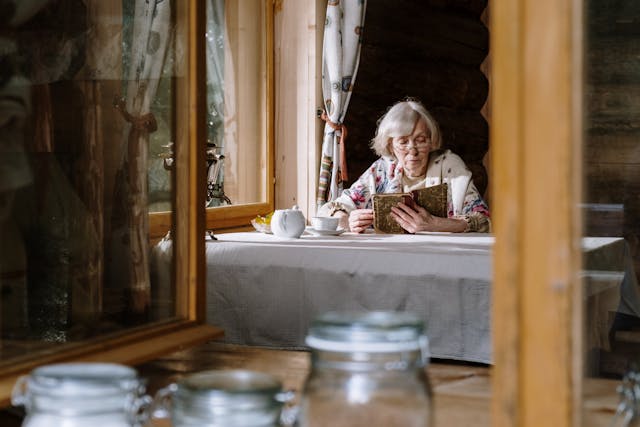Retirement’s a big milestone, and for lots of folks, it comes with a paid-off home. That’s more than just a place to crash—it’s a serious asset. Your house can help fund your goals, give you peace of mind, or keep things flexible. But tapping into it? That’s a big call, and it takes some serious planning. Wealth experts have plenty to say about how to make your home work for you, and it’s worth listening up. Here’s the lowdown on your options, from reverse mortgages to downsizing, and how to pick what’s right.
The Reverse Mortgage Buzz
When retirees start looking for extra cash, their home’s equity often comes to mind. One option that pops up a lot is a reverse mortgage. It’s kind of a big deal, but you have to know the pros and cons of reverse mortgage to see if it’s your thing.
A reverse mortgage lets you borrow against your home’s value without selling it or making monthly payments. Instead, the lender pays you—either in a lump sum, monthly checks, or a line of credit. You repay the loan when you sell the house or move out permanently. It’s a way to turn your home into cash while still living in it, which sounds pretty sweet for some.
Why Reverse Mortgages Appeal to Retirees
For retirees with tight savings but a valuable home, this can be a lifesaver. The extra money covers living expenses, medical bills, or home repairs, all while letting you stay put. For many, staying in their home’s the top priority, and a reverse mortgage makes that doable.
To qualify, you need to be at least 62 and live in the home. Lenders check if your place meets standards, and you’ll go through counseling to make sure you get the terms. The flexibility’s a big draw—you might clear debts, fix up the house, or just have a cushion for daily costs. It’s a no-brainer for folks on fixed incomes needing some wiggle room.
The Catch with Reverse Mortgages
Sounds great, but it’s not for everyone. You’re still on the hook for property taxes, insurance, and upkeep. Skip those, and you could default, which is a mess. Interest piles up over time, so the loan balance grows. When the home’s sold, there might not be much left for you or your heirs. That can catch families off guard, especially if they expect to inherit the house.
Fees are another kicker—closing costs and insurance can eat into your equity. It’s smart to chat with a trusted advisor who can break down the fine print and compare options. You don’t want surprises down the road, and talking it out with loved ones upfront helps avoid drama.
Other Ways to Cash In on Your Home
Reverse mortgages aren’t the only game in town. Downsizing’s a popular move—sell your big family home and buy something smaller. It cuts costs like utilities and maintenance, plus you pocket the extra cash. That’s a solid way to boost your retirement funds without loans.
Renting’s another path. Some retirees sell their home and rent an apartment or join a senior community. No more property taxes or repair headaches, and some places offer perks like gyms, meals, or shuttle services. It’s low-stress and can free up your lifestyle.
A home equity line of credit (HELOC) is a third option. You borrow as needed, often at lower rates than other loans. But you’ve gotta make payments, which can be tough if your income’s limited. It’s better for those with steady cash flow.
The Emotional Side of the Decision
Your home’s more than bricks—it’s where memories live. Selling or borrowing against it can hit hard. Some folks can’t imagine leaving their safe space, while others are ready for a fresh start. It’s super personal.
Ask yourself what’s most important. Want to stay put forever? Craving more travel or freedom? Is the house helping or holding you back? These questions shape your choice. Aging might change your needs too—stairs get tougher, yard work’s a drag. Downsizing or renting could make life comfier in the long run.
Planning for the Big Picture
Your home’s a piece of your retirement puzzle, but it shouldn’t be the whole plan. Map out all your assets, debts, and income—savings, pensions, Social Security. Think about your health, goals, and family needs. A financial advisor who gets retirement can tie it all together.
They’ll run scenarios, like how a reverse mortgage stacks up against downsizing or what happens if markets dip. A good plan’s flexible, ready for surprises like medical bills or home repairs. Your house can play a role, but only if it fits your overall strategy. Don’t just wing it—get the numbers straight.
Making Your Home Work for You
Your home’s more than a roof—it’s a tool for your financial future. Reverse mortgages can unlock cash for some, but they come with risks. Downsizing or renting might suit others better, cutting stress and boosting funds. There’s no one-size-fits-all answer.
Take your time, weigh your goals, and loop in experts. Talk to your family if they’re in the picture. The right move keeps you comfy and secure, letting you enjoy retirement on your terms. With a little planning, your home can be a powerhouse, supporting your dreams and giving you peace of mind.
























